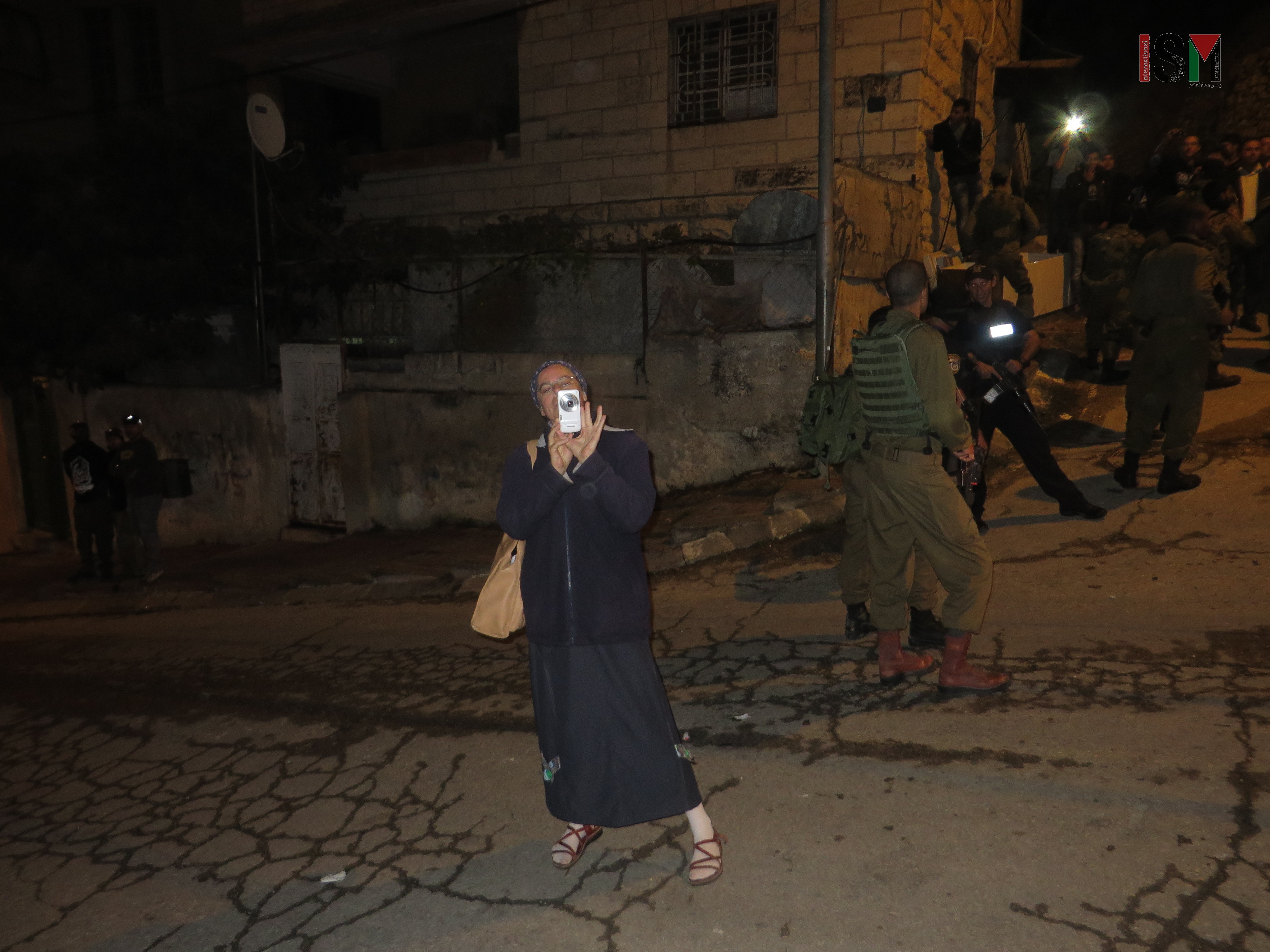Author: ISM Media
-
Gaza – a bloody Friday
9th October 2015 | International Solidarity Movement, Gaza team | Gaza, occupied Palestine UPDATE – 8pm: 8 martyrs and close to 100 persons injured at today’s demonstration in Shijaia ******* UPDATE – as of 6 pm today: From Osama al Jaro, Public Relations head at Al-Shifa hospital in Gaza: 6 dead, 60 injured, 11 injured…
-
Young Palestinian man held in metal box in al-Khalil
10th October 2015 | International Solidarity Movement, Al-Khalil team | Hebron, occupied Palestine As a part of the recent surge in violence, there has been an escalation in random ID checks and detentions across occupied al-Khalil,(Hebron) In the full Israeli military controlled H-2 section of al-Khalil this afternoon, several young Palestinian men were detained, interrogated…
-
Settlers march through occupied al-Khalil attacking, insulting and threatening Palestinians and internationals
7th October 2015 | International Solidarity Movement, Al-Khalil team | Hebron, occupied Palestine Yesterday night, October 7th 2015, a large group of settlers harassed, insulted and physically assaulted Palestinian residents and internationals in the Tel Rumeida neighbourhood of occupied al-Khalil (Hebron), injuring several. Around 08:00 pm, more than 50 settlers from the illegal settlements within…



